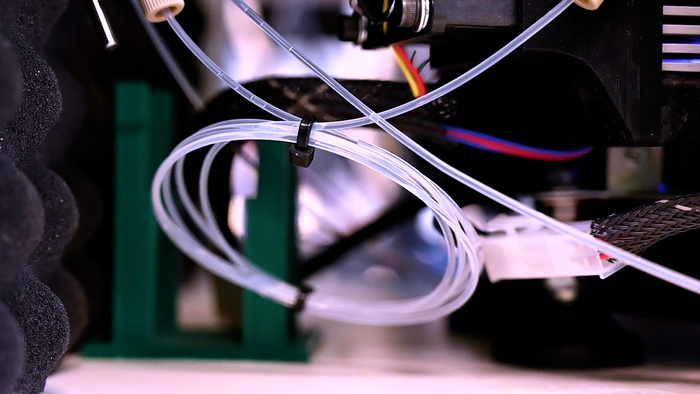It works autonomously 24 hours a day and synthesizes up to 20 molecules a week: it is RoboChem, the chemistry expert robot developed by the University of Amsterdam group led by Timothy Noël.
Described in the journal Science, the robot uses Artificial Intelligence to speed up the work of chemists and in 75% of cases the results it obtained were better than those obtained by human researchers.
The robot developed by Dutch researchers is a sort of automated mini chemistry laboratory, capable of autonomously managing the reagents, mixing them carefully, making them react using a photocalizer and then analyzing the results with a spectrometer.
It is also able to work 24 hours a day, testing intelligently and attentively to waste.
“In one week we can optimize the synthesis of around ten to twenty molecules, work that would take a doctoral student several months,” Noël said.
The robot not only provides the best reaction conditions, but the settings for scale-up, i.e. to optimize them on an industrial scale such as for the pharmaceutical sector.
Driving RoboChem is an AI that autonomously determines which reactions to perform, always aiming for the optimal result and constantly refining its understanding of chemistry.
“I have been working on photocatalysis for more than a decade now, however, RoboChem has shown results that I could not have predicted,” noted Noël.
"Sometimes - he added - I racked my brain to understand what he had done. You ask yourself then: would I have done the same? With hindsight you understand the logic of RoboChem, but I doubt that we too would have obtained the same results. Or at least not that fast."
To objectively measure the quality of the results, the researchers randomly selected 4 scientific articles and had RoboChem replicate the works: in 3 cases the robot produced better results and in one perfectly similar ones.
According to Noël, the use of robotics in chemistry will bring great improvements because these systems allow for very high quality data and also use fundamental 'negative' data, i.e. also failed experiments which are generally never published but which instead provide very important information .
Reproduction reserved © Copyright ANSA

